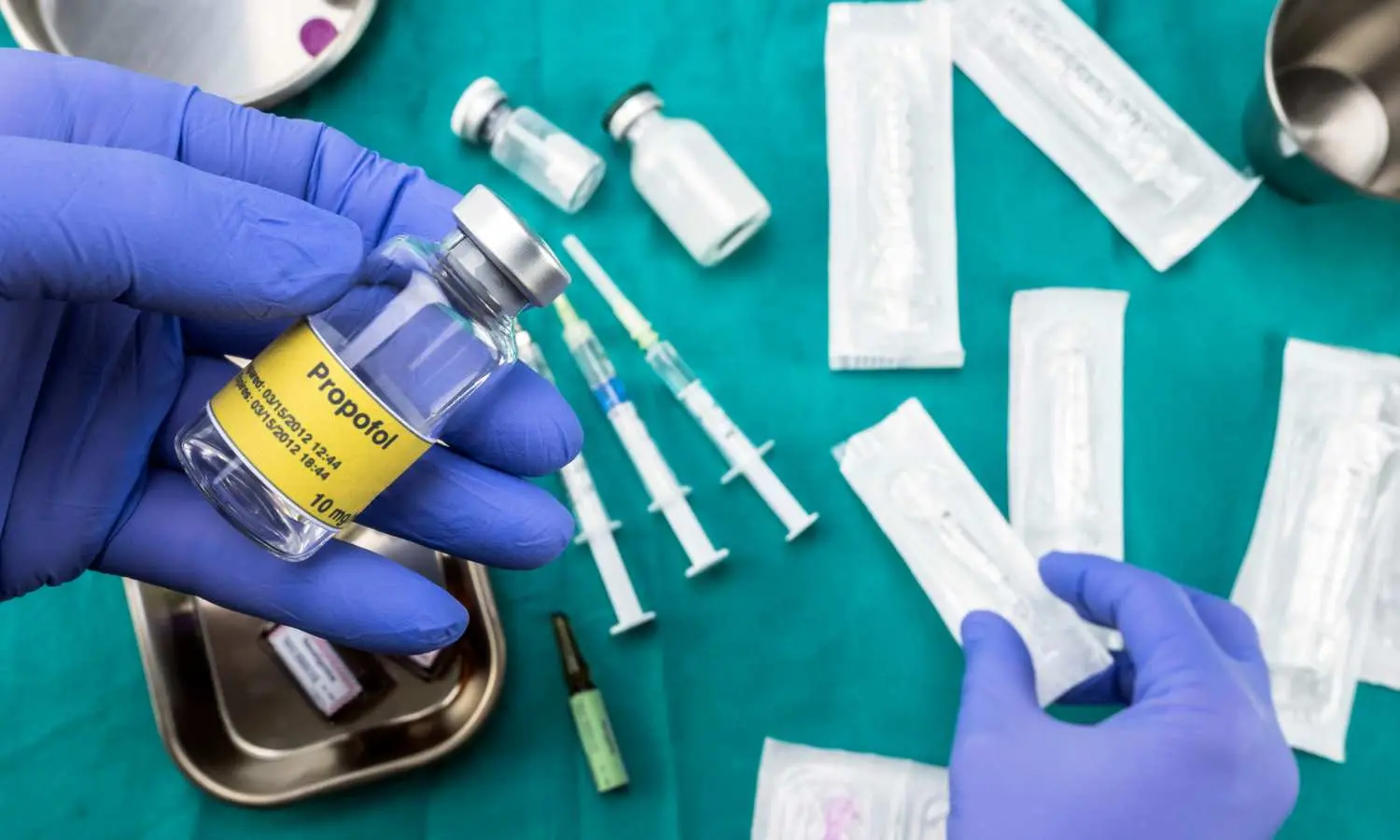- Home
- Medical news & Guidelines
- Anesthesiology
- Cardiology and CTVS
- Critical Care
- Dentistry
- Dermatology
- Diabetes and Endocrinology
- ENT
- Gastroenterology
- Medicine
- Nephrology
- Neurology
- Obstretics-Gynaecology
- Oncology
- Ophthalmology
- Orthopaedics
- Pediatrics-Neonatology
- Psychiatry
- Pulmonology
- Radiology
- Surgery
- Urology
- Laboratory Medicine
- Diet
- Nursing
- Paramedical
- Physiotherapy
- Health news
- Fact Check
- Bone Health Fact Check
- Brain Health Fact Check
- Cancer Related Fact Check
- Child Care Fact Check
- Dental and oral health fact check
- Diabetes and metabolic health fact check
- Diet and Nutrition Fact Check
- Eye and ENT Care Fact Check
- Fitness fact check
- Gut health fact check
- Heart health fact check
- Kidney health fact check
- Medical education fact check
- Men's health fact check
- Respiratory fact check
- Skin and hair care fact check
- Vaccine and Immunization fact check
- Women's health fact check
- AYUSH
- State News
- Andaman and Nicobar Islands
- Andhra Pradesh
- Arunachal Pradesh
- Assam
- Bihar
- Chandigarh
- Chattisgarh
- Dadra and Nagar Haveli
- Daman and Diu
- Delhi
- Goa
- Gujarat
- Haryana
- Himachal Pradesh
- Jammu & Kashmir
- Jharkhand
- Karnataka
- Kerala
- Ladakh
- Lakshadweep
- Madhya Pradesh
- Maharashtra
- Manipur
- Meghalaya
- Mizoram
- Nagaland
- Odisha
- Puducherry
- Punjab
- Rajasthan
- Sikkim
- Tamil Nadu
- Telangana
- Tripura
- Uttar Pradesh
- Uttrakhand
- West Bengal
- Medical Education
- Industry
Study Explores the Potential of Ciprofol Compared to Propofol for anesthesia induction in cardiac surgery

The increasing occurrence of heart diseases like coronary heart disease and heart valve disease is linked to demographic changes and an aging populace. Patients who do not respond well to medical interventions may require cardiac surgery, posing challenges due to substantial hemodynamic variations during anesthesia induction and a higher risk of adverse events. Propofol is frequently used for anesthesia induction in different surgeries, including cardiac procedures, despite its notable impact on cardiovascular and respiratory functions and the rare but serious propofol infusion syndrome.Recent study examines the safety and hemodynamic effects of the novel intravenous general anesthetic Ciprofol compared to Propofol for anesthesia induction in cardiac surgery patients. Ciprofol is a recently developed sedative with greater potency than Propofol and a chiral structure that enhances its affinity for GABAA receptors.
The study enrolled 78 patients undergoing coronary artery bypass grafting or heart valve replacement surgery, who were randomly assigned to receive either Ciprofol or Propofol for anesthesia induction. The primary outcome was to evaluate hemodynamic fluctuations, specifically changes in mean arterial pressure (MAP) and heart rate (HR) during anesthesia induction. Secondary outcomes included the incidence of injection pain, latency to loss of corneal reflex, oxygen saturation, and oxygenation index.
Comparison of Groups
The results showed no significant differences in MAP and HR changes between the Ciprofol and Propofol groups during anesthesia induction. The incidence of anesthesia-induced injection pain was significantly lower in the Ciprofol group compared to the Propofol group (3% vs. 18%, p<0.05). However, there were no significant differences in the incidence of adverse events such as hypotension, bradycardia, and the use of vasopressors and anticholinergics between the two groups.
Oxygenation and Metabolic Effects
Oxygenation parameters and lactate concentration were also comparable between the groups, indicating similar respiratory and metabolic effects of Ciprofol and Propofol. These findings suggest that Ciprofol provides similar hemodynamic stability to Propofol during anesthesia induction in cardiac surgery, while offering the advantage of reduced injection pain. The study is limited by its small sample size, which may have been underpowered to fully capture differences in adverse events. Additionally, the study only included patients with moderate cardiac dysfunction, and the long-term outcomes were not assessed. Further research is needed to evaluate the broader clinical implications and potential advantages of Ciprofol in various cardiac surgery patient populations.
Key Points
1. The study examined the safety and hemodynamic effects of the novel intravenous general anesthetic Ciprofol compared to Propofol for anesthesia induction in cardiac surgery patients.
2. The study enrolled 78 patients undergoing coronary artery bypass grafting or heart valve replacement surgery, who were randomly assigned to receive either Ciprofol or Propofol for anesthesia induction.
3. The primary outcome was to evaluate hemodynamic fluctuations, specifically changes in mean arterial pressure (MAP) and heart rate (HR) during anesthesia induction. Secondary outcomes included the incidence of injection pain, latency to loss of corneal reflex, oxygen saturation, and oxygenation index.
4. The results showed no significant differences in MAP and HR changes between the Ciprofol and Propofol groups during anesthesia induction. The incidence of anesthesia-induced injection pain was significantly lower in the Ciprofol group compared to the Propofol group.
5. Oxygenation parameters and lactate concentration were also comparable between the groups, indicating similar respiratory and metabolic effects of Ciprofol and Propofol.
6. The study is limited by its small sample size and only included patients with moderate cardiac dysfunction, and the long-term outcomes were not assessed. Further research is needed to evaluate the broader clinical implications and potential advantages of Ciprofol in various cardiac surgery patient populations.
Reference –
Yu, L., Liu, X., Zhao, X. et al. Ciprofol versus propofol for anesthesia induction in cardiac surgery: a randomized double-blind controlled clinical trial. BMC Anesthesiol 24, 412 (2024). https://doi.org/10.1186/s12871-024-02795-0
MBBS, MD (Anaesthesiology), FNB (Cardiac Anaesthesiology)
Dr Monish Raut is a practicing Cardiac Anesthesiologist. He completed his MBBS at Government Medical College, Nagpur, and pursued his MD in Anesthesiology at BJ Medical College, Pune. Further specializing in Cardiac Anesthesiology, Dr Raut earned his FNB in Cardiac Anesthesiology from Sir Ganga Ram Hospital, Delhi.


